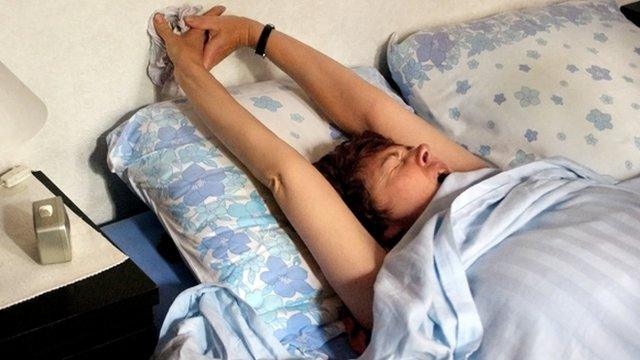New device trialled to speed up sleep apnoea diagnosis
- Published
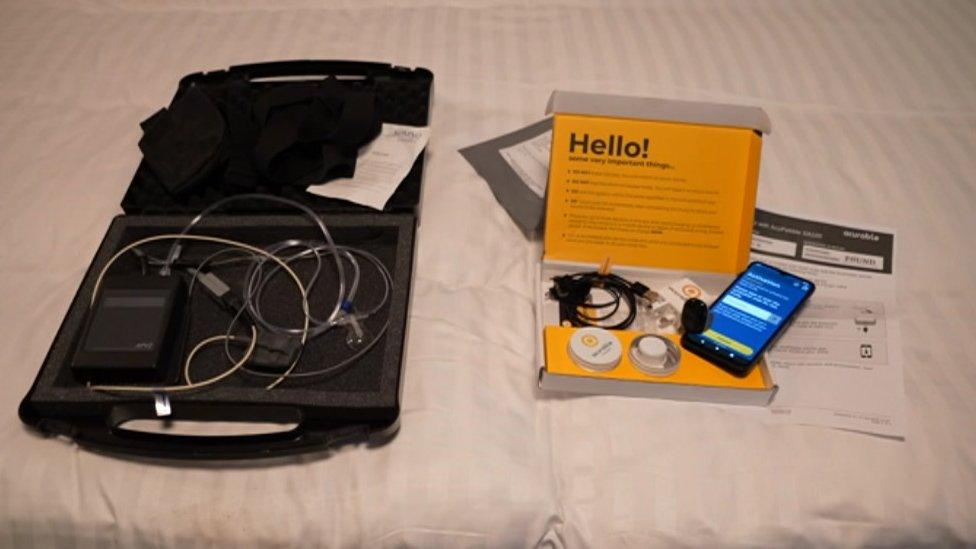
The trial is being run by sleep experts at the University of Warwick with data being analysed at the University of Oxford
A new gadget is being offered to help diagnose cases of obstructive sleep apnoea.
A trial being run by the University of Warwick's sleep expert Prof Michelle Miller sees a pebble-sized detector being sent to people across Coventry and Warwickshire.
The device is worn over the throats of potential sufferers and connects to a smartphone which collects the data.
It is hoped the device will cut appointment waiting lists.
Obstructive sleep apnoea happens during sleep when the airway becomes slightly or even completely blocked.
Prof Jeremy Dale, of Warwick Medical School, said: "Over time there is an increased risk of accidents which can be very serious.
"It can affect your heart and cardiovascular system which can lead to an increased risk of stroke or problems with high blood pressure."
Yet the vast majority of people affected do not know they have it.
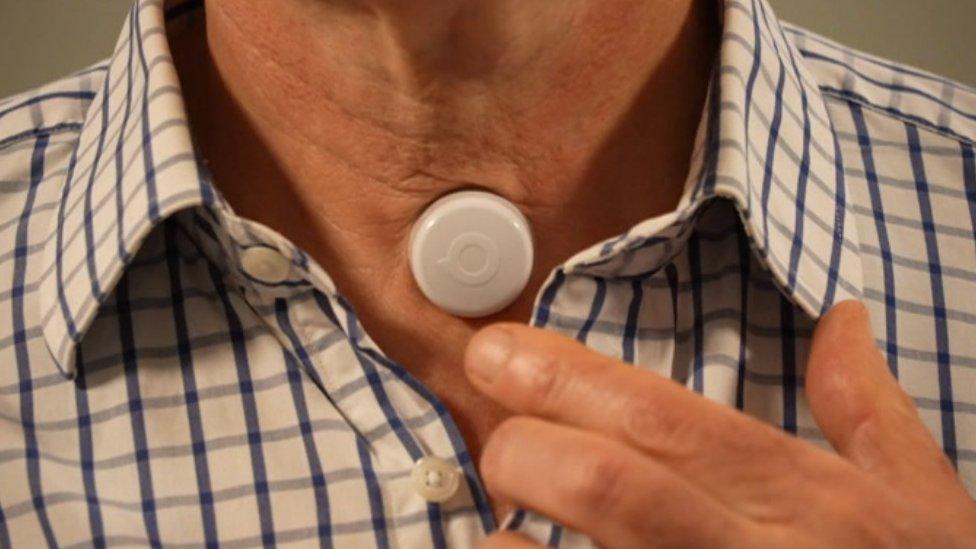
Potential sufferers wear the device over their throats while sleeping
Symptoms include feeling very tired during the day, struggling to concentrate, mood swings and a headache upon waking up.
During the night, patients may experience their breathing stopping and starting, gasping, snorting or choking noises and loud snoring.
At the moment, a formal diagnosis is quite a complex procedure. A GP refers a potential sufferer to a consultant and they are placed on a waiting list for an appointment.
Then, a medical device with tubes and cables that captures data while the patient is asleep is given out and a report is produced from the findings.
However, sleep experts running the new trial, funded by the National Institute for Health Research, are hoping to radically change the entire process.
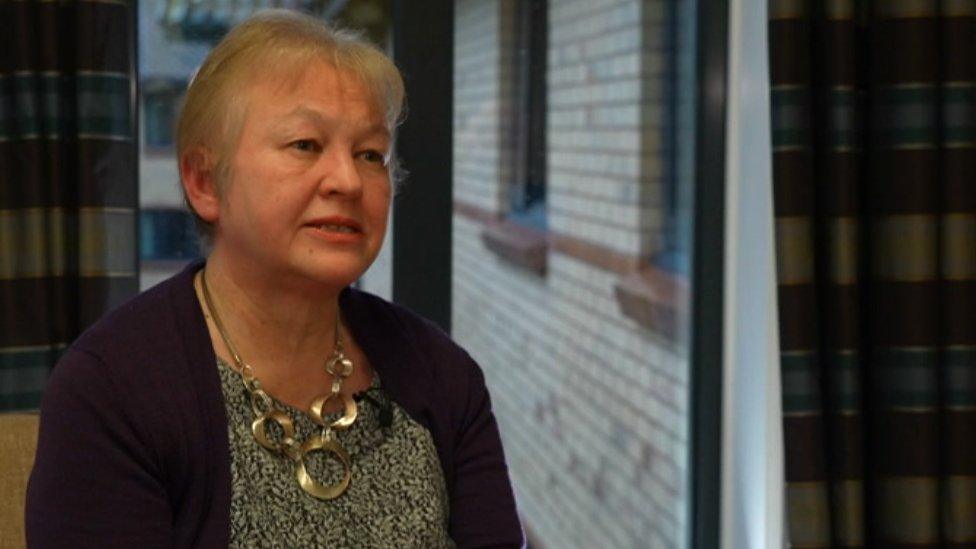
Prof Michelle Miller is running the trial across Coventry and Warwickshire
Experts say the device is quicker, easier and cheaper and produces results ready for a consultant to review following one overnight sleep.
Prof Miller added: "Our sleep consultant is really pleased with the change because it would mean they spend less time doing all the diagnosis and more time treating the patients."
The trial has now begun and the data collected will be analysed by the University of Oxford.

Follow BBC West Midlands on Facebook, external, X, external and Instagram, external. Send your story ideas to: newsonline.westmidlands@bbc.co.uk, external
- Published2 October 2023
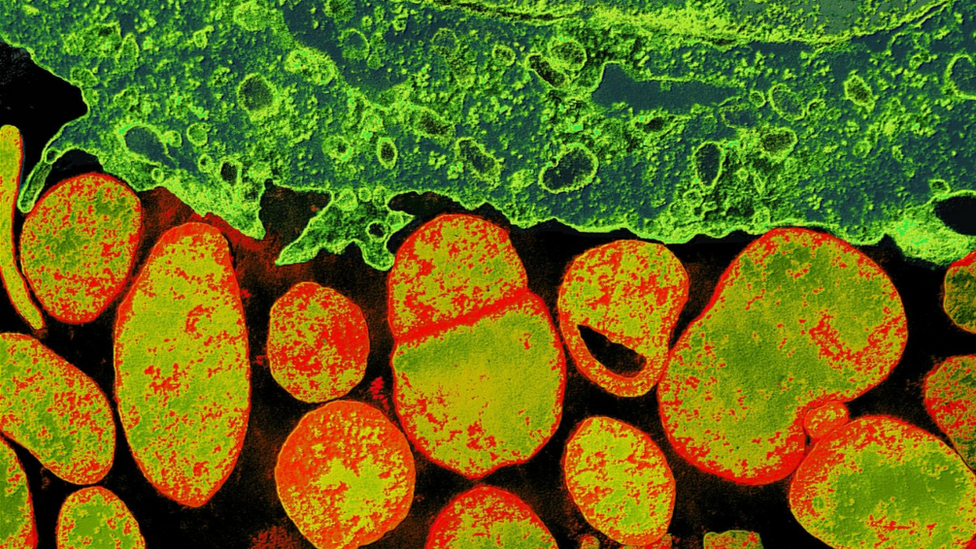
- Published21 August 2023
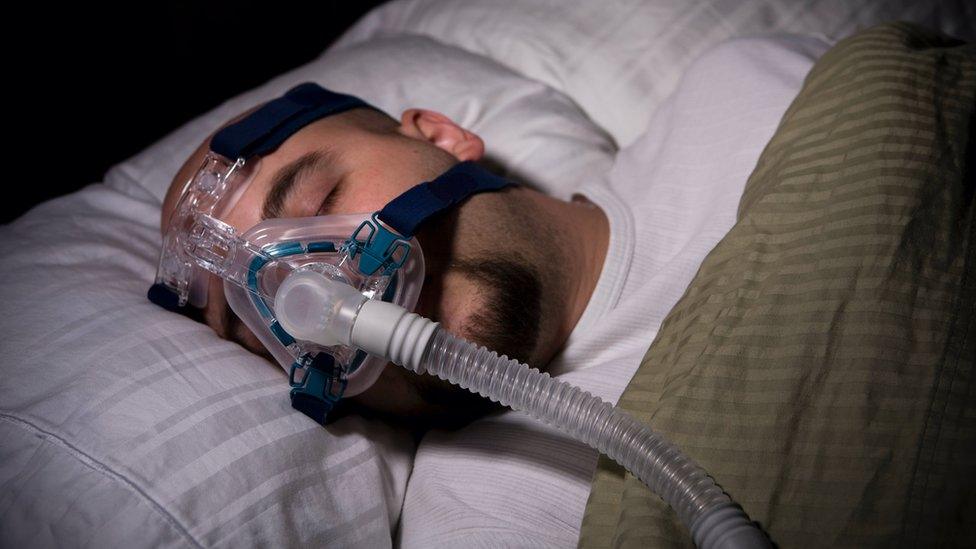
- Published13 March 2020
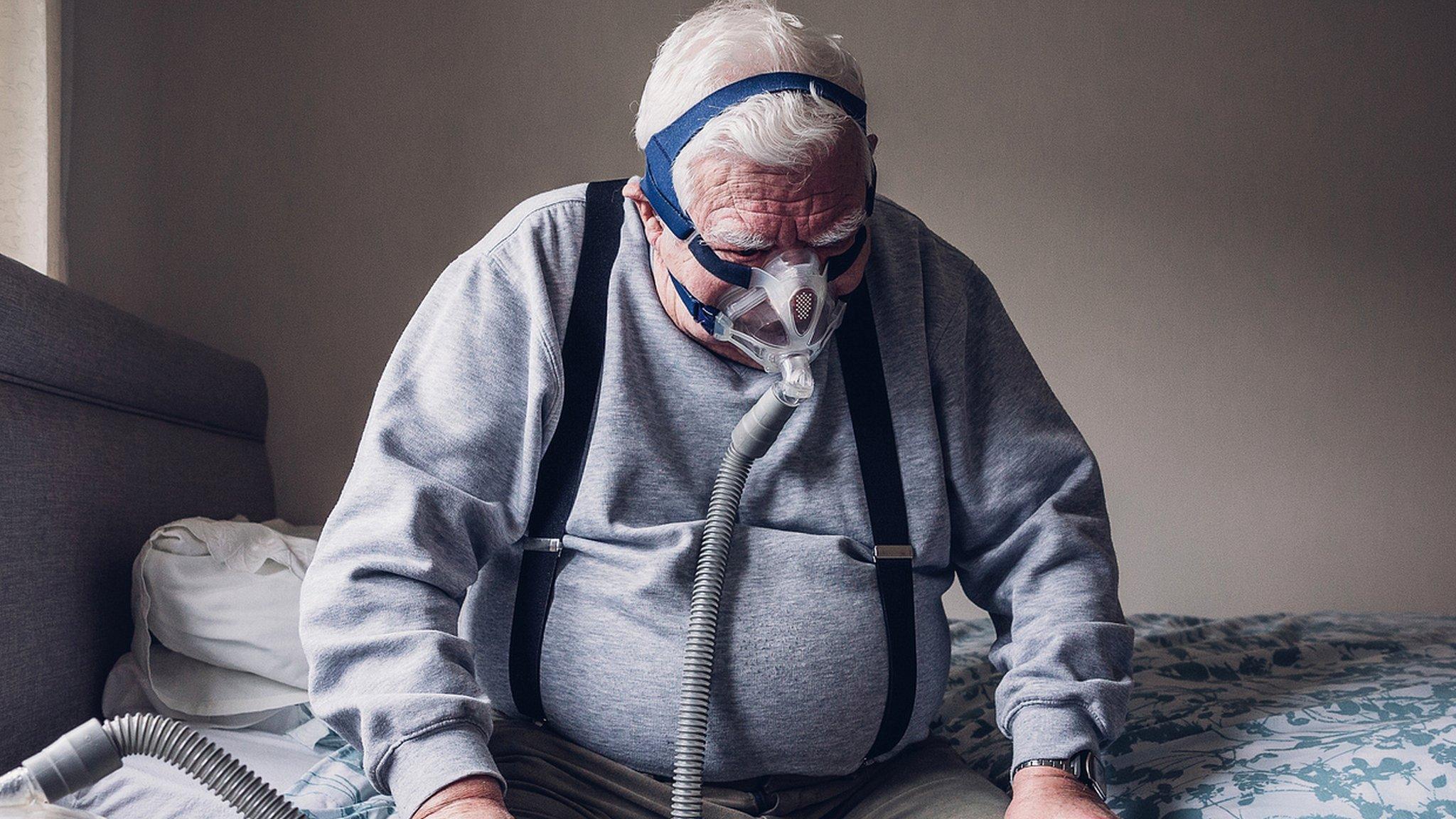
- Published19 September 2013
